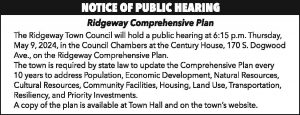Martin Luther King’s “I Have a Dream” speech summarized the struggles of millions and inspired people of all backgrounds, then and now.
The eighteen-minute oration from the steps of the Lincoln Memorial on Aug. 28, 1963, remains a seminal moment in American history.
The March on Washington, which was not solely organized by King, was intended as a peaceful demonstration for “jobs and freedom” for all Americans. It also served as a mass call for passage of civil rights legislation introduced by President John F. Kennedy two months before.
Organizers feared a low turnout, but an estimated 250,000 demonstrators, about a third of them white, showed up in Washington to hear an array of celebrities, activists, and performers.
In the crowd that day was Bill Gluba, a college student who served as the mayor of Davenport, Iowa from 2008-16, as well as Henry Brockington, who went onto a long teaching career at Palmer College of Chiropractic.
“I was active in civil rights in the Washington area,” said Brockington, then a 23-year-old Howard University student. “I did a number of sit-ins and went into neighborhoods in Washington and the surrounding areas.”
Headlining the event was the 34-year-old King, who used about half of a prepared speech that opened with a reference to Lincoln’s Emancipation Proclamation. He followed with a comparison of the signing of the Constitution and Declaration of Independence as a “promissory note” guaranteeing “inalienable rights.” But King declared that “America has defaulted on this promissory note,” giving “the Negro people a bad check which has come back marked “’insufficient funds.’”
Though his words were well-received, after ten minutes he sensed an opportunity. He laid aside his text and spoke from the heart, invoking the words “I have a dream,” though it was not the first time he used that phrase in a speech; he had actually spoken it several times before.
But on this day, the words rang as never before. He repeated them seven more times to growing cheers, referencing the Declaration of Independence, the racial struggles of the South, and his hopes for his four children. His concluding passage of “free at last, free at last” was from his original text and met with thunderous applause.
“It was a very historic moment,” said Gluba. “You could just sense it, with the sheer number of people of all ethnic backgrounds, all coming together. It was probably the largest peaceful demonstration ever in Washington, and it was kind of overwhelming.”
Brockington still remembers where he was standing. “I was by a tree on the right-hand side of the reflecting pool,” he said. “I still call it ‘my tree.’
“It was the most fulfilling speech I had heard in my lifetime to that point,” recalled Brockington. “It was the most exhilarating, most promising experience, because I felt I was needed. I saw what I had to do to help others. For the first time in my life, I really felt like an American, not just an Afro-American, because of the mass of people of many different races.”
King’s words were heard nationwide, as all three networks pre-empted regular programming to broadcast the speech live. The speech remains one of the most recognizable moments of the era.
Coretta Scott King later recalled her husband’s words as coming “from some higher place.” The Los Angeles Times lauded the speech as “matchless eloquence,” a sentiment shared by most observers.
In addition to its historic impact, the speech is also considered a model of rhetoric. King’s historical and Biblical allusions and use of repetition hammered home his message, creating a timeless quality to his words that still resonates to many today.
“Dr. King was the most powerful orator I’ve ever heard,” said Gluba. “And I’ve heard a lot of presidents, senators, and other leaders.”
However, within a few years the speech had faded from view, partly due to subsequent events. Three weeks after the March on Washington, a Baptist church in Birmingham was bombed, killing four young girls and tempering the optimism that flowed from King’s words. The Kennedy assassination that November, coupled with the Vietnam War and other hallmarks in the civil rights struggle, also overshadowed the speech.
As the March on Washington intended, the Civil Rights Act was signed in July 1964 and legally banned discrimination in jobs, voting, and public facilities. Other landmark advancements in civil rights followed, but the struggle was hardly over. In 1965, a disappointed King declared that his “dream” had become a “nightmare.”
King’s assassination on April 4, 1968 revived interest in “I Have a Dream,” and it has since taken its place among the greatest orations in American history. A 1999 poll of scholars by the University of Wisconsin ranked “I Have a Dream” as the top American speech of the twentieth century.
In 1986, King’s birthday became a national holiday, and the speech is a common theme of its celebrations. Its words have been repeated worldwide, including by Nelson Mandela and during the Tiananmen Square protests of June 1989.
Tom Emery is a historical researcher and freelance writer from Carlinville, Ill. He may be reached at 217-710-8392 or [email protected].










